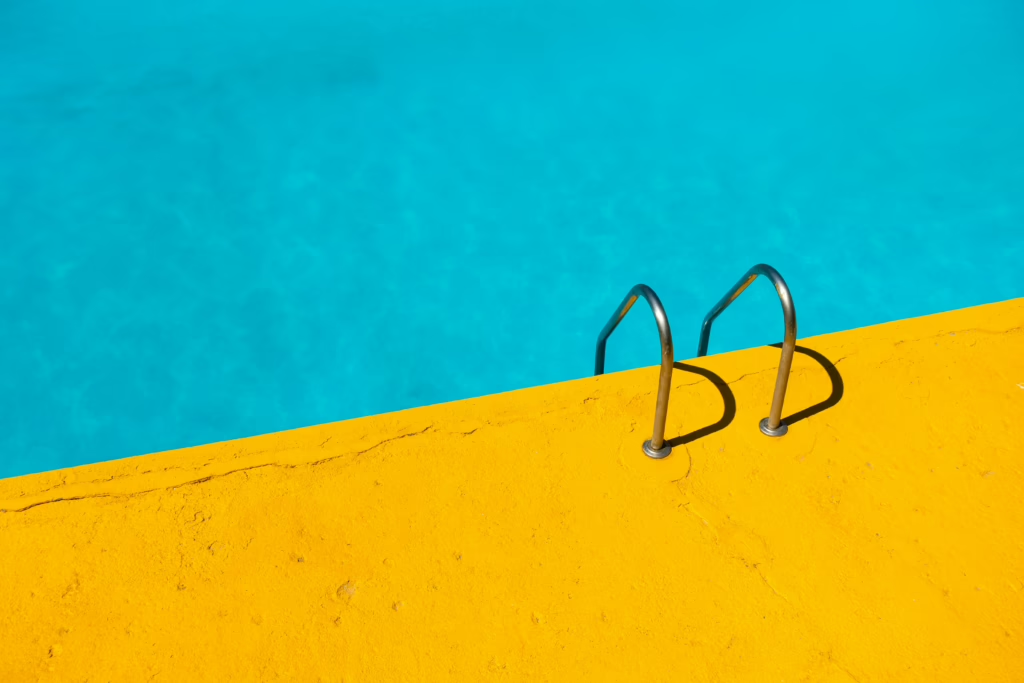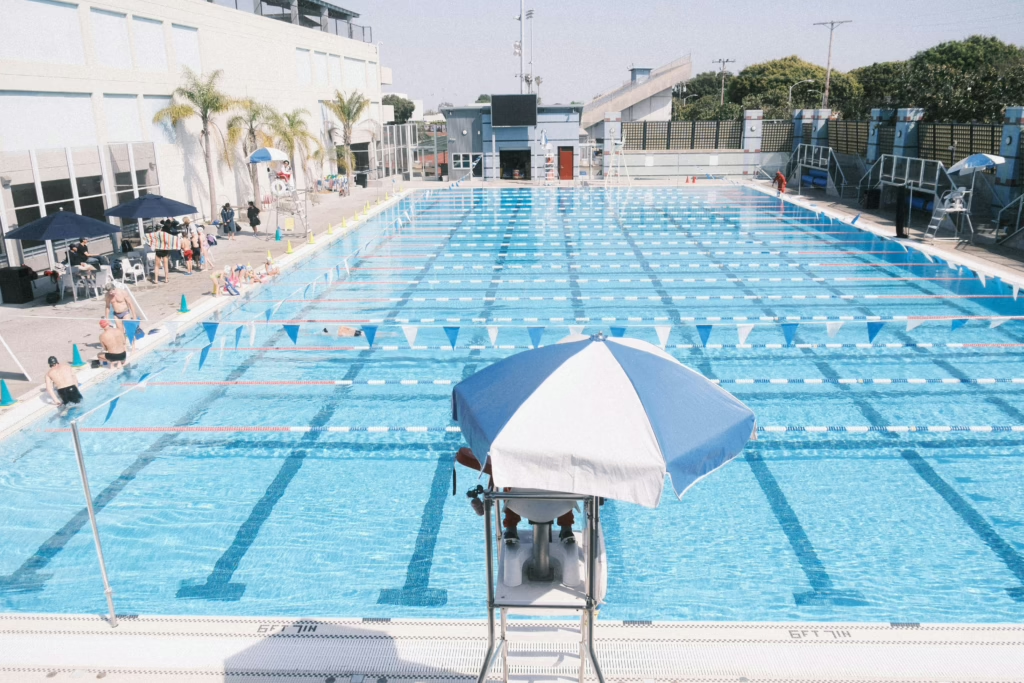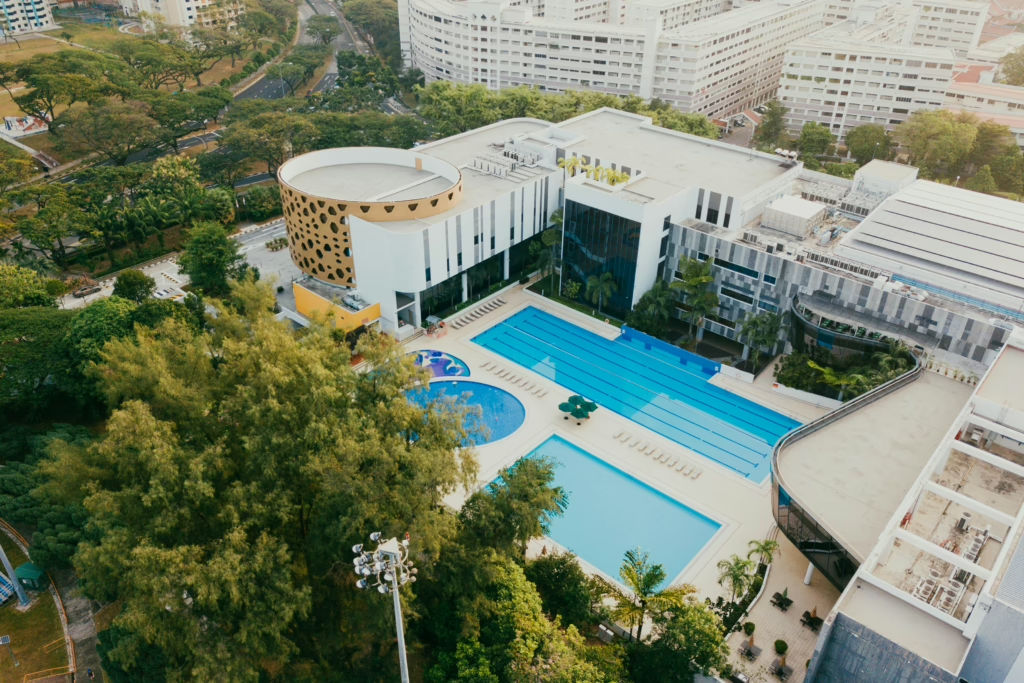Let’s talk about something every San Diego pool owner dreads – walking outside on a hot day, ready for a refreshing dip, only to find cloudy water or a silent pump. Trust me, I’ve been there, and it’s frustrating.
If you’re Googling “pool pump repair near me” between sips of coffee this morning, you’re in good company. Our beautiful year-round swimming weather is amazing, but it means our pool equipment works harder than in almost any other part of the country. Let me walk you through what’s really happening with pool pumps in San Diego and how you can avoid joining the ranks of frustrated pool owners this season.
The Real Pool Pump Challenges We Face in San Diego
1. Year-Round Wear and Tear
In Minnesota, pool pumps get a six-month vacation every year. Here in San Diego? Your pump is running laps 365 days a year. That’s like driving your car non-stop without ever changing the oil – eventually, something’s got to give.
You’ll know there’s trouble when your once-quiet pump starts sounding like it’s gargling rocks, or when water circulation slows down despite the pump running. Maybe you’ve noticed small puddles forming where they shouldn’t be. These are all your pump’s way of waving a little white flag.
The fix isn’t complicated, but it does require attention. Regular check-ups catch small issues before they become pool-closing emergencies. Just like you wouldn’t ignore strange noises from your car engine, don’t tune out your pool pump’s cries for help.
2. Saltwater System Challenges
I love saltwater pools – that soft, silky feel without the chemical smell is hard to beat. But here’s what nobody mentions at the sales pitch: salt is essentially corrosion in slow motion for your equipment.
The signs aren’t always obvious at first. You might notice a bit more scale building up, or components that looked fine last season suddenly showing wear. Often, the first clear sign is a seal failing earlier than it should, leaving you with leaks and repair bills.
If you’ve got a saltwater pool, staying on top of proper salt levels isn’t just about swimmer comfort – it’s protecting your investment. And when it’s time to replace components, spending extra on salt-rated equipment saves money in the long run. Think of it as buying the right tires for your car – the desert-rated ones cost more upfront but last twice as long in our climate.
3. Coastal Debris Issues
Living near the coast has countless perks, but your pool pump might disagree. That refreshing ocean breeze carries microscopic salt particles, sand, and debris that eventually find their way into your filtration system.
You’ll notice it when your pump basket fills up faster than usual, or when your normally efficient system seems to be working overtime just to keep up. The water might take longer to clear up after a windy day, even with the pump running.
The solution is simple but requires diligence. Check and empty those baskets more frequently than the pool manual suggests – they were written for generic “average” conditions, not San Diego coastal living. Consider a better pool cover for those Santa Ana wind days when it seems like half the beach is being redistributed across your property.
4. Power Supply Problems
San Diego’s electrical grid gets pushed to its limits during our hottest months. Those brownouts, surges, and outages aren’t just inconvenient – they’re tough on sensitive pool equipment.
When your pump randomly shuts off, hums but doesn’t move water, or trips the breaker repeatedly, electrical issues are often the culprit. And unfortunately, power problems can cause damage that doesn’t show up immediately but shortens your equipment’s life span.
A dedicated circuit for your pool equipment is worth every penny, as is a quality surge protector designed for outdoor use. If you’re in an area prone to power fluctuations, talk to your pool pro about adding extra protection for your system. It’s much cheaper than replacing a fried pump motor in the middle of summer.
When to Roll Up Your Sleeves vs. When to Call for Help
Let’s be real – some pool issues are totally DIY-friendly, while others require professional expertise. Here’s my practical advice after years in the business:
Go ahead and handle these yourself:
- Clearing out that pump basket (just remember to turn the power off first!)
- Checking for obvious leaks around pipe connections
- Resetting a tripped breaker (once – if it happens again, that’s a warning sign)
- Basic water testing and chemistry adjustments
Time to call in the pros when:
- Your pump motor is making grinding or screeching noises
- You’re dealing with electrical issues beyond a simple tripped breaker
- The pump is leaking from the seals or housing
- Your system loses prime repeatedly despite your best efforts
Frequently Asked Questions:
1. What’s this going to cost me to fix?
Most pool pump repairs in San Diego run between $150-$500 depending on what needs fixing. Complete replacements typically cost $500-$1,200 plus installation. And yes, those variable-speed pumps cost more upfront, but they’ll actually save you money on your power bill over time.
2. How often should I have someone check my equipment?
Even if you’re diligent about DIY maintenance, having a professional inspection twice a year helps catch developing issues. Think of it as preventive medicine – catching small problems before they become expensive emergencies.
3. Are those fancy variable-speed pumps really worth it?
In Southern California? Absolutely. With our electricity rates and year-round pool usage, most homeowners recover the higher initial cost through energy savings within 18-24 months. Plus, they run quieter and often last longer than single-speed pumps.
4. Repair or replace – how do I decide?
Here’s my rule of thumb: If repairs will cost more than 50% of a new pump’s price, or if your current pump is over 7 years old, replacement usually makes more financial sense in the long run.
5. What can I do myself to keep my pump running longer?
Clean those baskets regularly, maintain proper water chemistry (especially important for saltwater pools), ensure good airflow around your equipment, and listen occasionally for unusual noises. Simple vigilance prevents many common problems.
6. How quickly can I get help when my pump dies?
Any reputable San Diego pool company should offer same-day or next-day service for emergencies, especially during summer. If they can’t get to you within 48 hours during peak season, that’s a red flag.
7. Will my home insurance help with pump repairs?
Standard homeowner’s policies typically don’t cover normal wear and tear, but might help if damage results from a covered event like a power surge or storm. Worth checking your specific policy details.
8. How many years should my pump last in San Diego?
With proper maintenance, a quality pump should give you 8-12 years of reliable service. If you’re getting significantly less, either the equipment quality wasn’t there to begin with, or something in your maintenance routine needs adjustment.
9. My pump is noisy – is that normal?
Some background humming is normal, but you shouldn’t have to raise your voice to talk near your equipment. If your pump sounds like it’s auditioning for a rock band, something’s not right.
10. Can my pool go a few days without the pump running?
In an emergency, yes – for maybe 2-3 days maximum in mild weather. But without circulation, your water quality deteriorates quickly, especially in warm weather. You’ll end up spending more on chemicals and cleaning than you would have on a prompt pump repair.
Final Thoughts
Your pool pump might not be the most exciting topic over dinner, but it’s the heart of your backyard oasis. A little attention and care goes a long way toward preventing those “no swimming today” disappointments and unexpected repair bills.
If you’re looking for dependable “pool pump repair near me,” PoolLogic specializes in the unique challenges San Diego pools face. Our 5-minute setup process gets you on the schedule without hassle, and we’ll have your pool back in swimming condition before you know it.
Ready for a more enjoyable pool experience with fewer headaches? Give us a call – we speak pool owner, not just pool technician.



